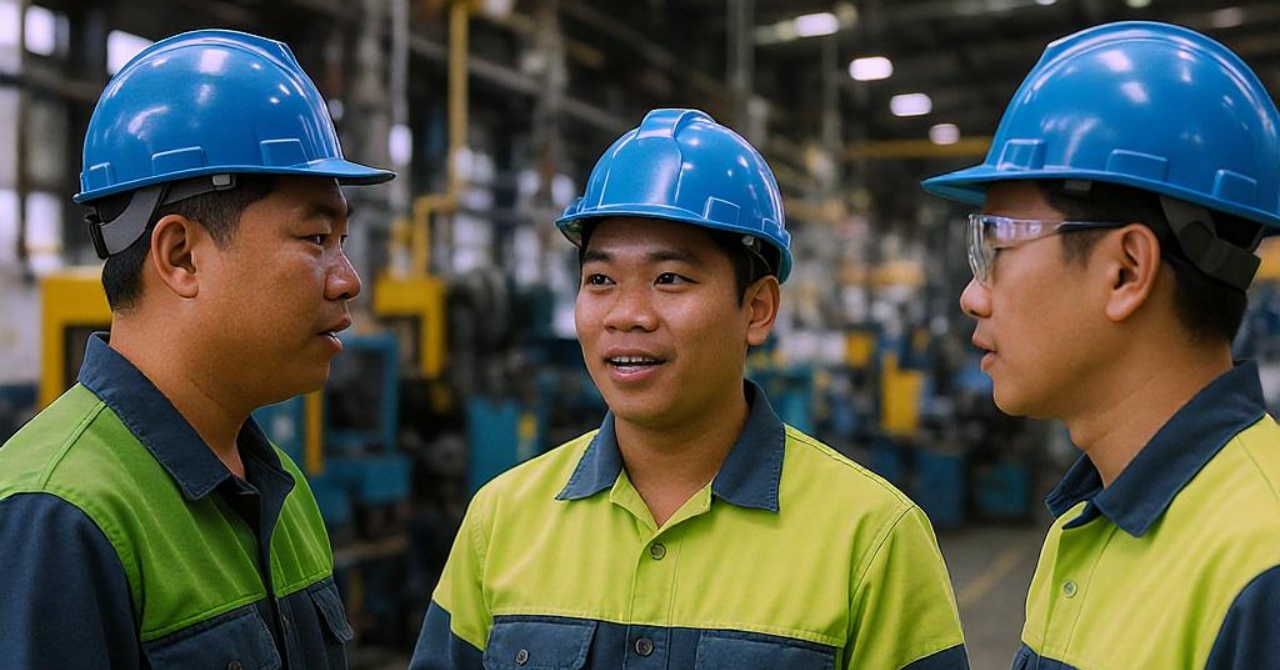When I started working in Taiwan, I thought that simply arriving early and meeting deadlines would be enough. But I quickly realized something deeper was expected—something rooted in how I worked with others, not just what I did. That “something” turned out to be relationship-building grounded in cultural respect.
If you’re also trying to build a better connection with your Taiwanese employer or team, it’s not about being the loudest voice in the room. It’s about listening, observing, and adapting to a work culture shaped by centuries-old values.

Understanding Taiwanese Work Values
Taiwanese workplaces are deeply influenced by Confucian values, which prioritize:
- Respect for hierarchy
- Humility over assertiveness
- Harmony over confrontation
- Loyalty and collective success
This means that building trust starts with demonstrating deference and discretion. Interrupting a superior, disagreeing openly in meetings, or pushing too hard for personal credit might be misunderstood. Instead, careful listening, acknowledging group input, and supporting the team’s collective goals will earn more respect.
Practice “Guanxi”: Personal Connections Matter
You might hear the term guanxi (關係)—a kind of relational currency. It refers to the personal bonds that make the workplace smoother and more cooperative.
In Taiwan, that can look like:
- Sharing a meal with your boss or coworkers after work.
- Saying yes to karaoke night even if you don’t sing.
- Asking your team leader about their favorite local food or hometown during breaks.
These small acts help you become more than just a coworker—they help you become part of the community.
Communication: Speak Softly and Respectfully
In a Taiwanese office:
- Criticism should be private and indirect.
- Praise should be public and sincere.
- Tone matters just as much as words.
Avoid blunt or confrontational language. If you have a suggestion, you might say:
“Maybe we could also consider…” instead of “I think your idea won’t work.”
Also, address people by their titles, not just their names. This simple habit goes a long way in showing respect.
Daily Habits That Build Trust at Work
Building strong work relationships isn’t just about big gestures or one-time efforts. In Taiwanese workplaces, trust is formed through small, respectful actions repeated over time. Here are some simple but powerful habits you can start practicing every day:
- Punctuality and Reliability
Arrive on time and come prepared. Whether it’s a quick team huddle or a scheduled meeting, showing up consistently and delivering on your commitments demonstrates that you’re dependable—something deeply valued in Taiwanese teams. - Respectful Greetings and Personal Engagement
A warm “good morning,” a nod, or a short personal exchange goes a long way. Addressing people by their titles with a kind tone adds a layer of cultural respect that gets noticed. - Active Listening and Thoughtful Speech
Avoid interrupting, and try to really listen—especially when someone’s speaking indirectly. Think before you respond. When giving input, choose phrasing that uplifts rather than criticizes. Something as small as saying, “I appreciate your suggestion. Could we also explore…” can show both respect and contribution. - Join Team Rituals
Whether it’s grabbing bubble tea together, sharing snacks, or joining after-work socials, your presence matters. These shared moments—even quick ones—build camaraderie and trust outside formal work settings. - Politeness in Digital Chats
A short “thank you” in a group message or polite language in emails is a small habit that builds a big impression. If you need to raise an issue, do it privately and kindly to maintain respect and harmony.
These habits may seem minor, but over time, they help you earn not just your colleagues’ trust—but their friendship, too.
Hierarchy is Clear—and Expected
Even in friendly workplaces, seniority shapes expectations. If your manager gives you a task, following it step-by-step shows not just responsibility, but also loyalty and professionalism. If you disagree, bring it up gently and, ideally, in private.
This isn’t about suppressing your voice—it’s about timing and tact.
Be Patient: Trust Takes Time
Relationships in Taiwan aren’t built overnight. You might spend weeks or months simply being present, helpful, and polite before real trust forms. But once it does, it becomes a mutual foundation of reliability—one that often extends far beyond the workplace.
Try:
- Consistently offering help, even in small ways.
- Showing gratitude when someone helps you.
- Remembering personal milestones (birthdays, holidays, etc.) and joining in celebrations.
Comparing Cultures: Taiwan vs. the West
| Feature | Taiwanese Workplace | Western Workplace (e.g. U.S./EU) |
| Communication Style | Indirect, face-saving | Direct, transparent |
| Leadership & Hierarchy | Clear authority, respect for titles | Flat hierarchy, informal communication |
| Decision-making | Consensus-oriented | Individual decision-making encouraged |
| Feedback | Given privately, carefully | Given openly, often publically |
| Social Bonds | Essential for trust (guanxi) | Secondary to performance |
Connect Through Culture
To deepen your relationships beyond work, immerse yourself in local customs:
- Attend Lunar New Year dinners or Mid-Autumn Festival gatherings.
- Join karaoke nights, breakfast meetups, or company sports days.
- Visit temple fairs or community festivals with colleagues.
These are perfect chances to show you’re genuinely curious and respectful of Taiwanese traditions. Plus, they make great conversation starters at work the next day.

Frequently Asked Questions
Q1: What values should I be aware of when working in Taiwan?
Respect for hierarchy, harmony, and humility are core values in the workplace.
Q2: Is it okay to voice my opinions openly?
Yes, but it’s best to do so politely and in private if it involves disagreement. Avoid direct confrontation.
Q3: How important are social events outside of work?
Very! These events are crucial for building guanxi—personal bonds that strengthen trust and teamwork.
Q4: How long does it usually take to build trust?
It can take weeks or months, so stay patient and consistent. Small, respectful actions add up over time.
Final Thoughts
Working in Taiwan taught me that career success isn’t just about technical skills. It’s about learning the unspoken rules that govern respect, relationships, and rapport. If you listen more than you speak, observe more than you assume, and show up consistently with humility—you’ll find that your Taiwanese colleagues not only welcome you, but often go out of their way to support you.
Whether you’re new in Taiwan or just hoping to connect better with your team, remember: relationship-building here is a slow, respectful dance—not a quick negotiation.
